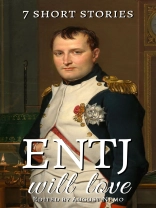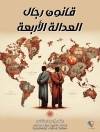ENTJs are natural born leaders and, while they’re intuitive, they like to deal with life rationally. In this book you will find seven short stories specially selected to please the tastes of the ENTJ. These are stories by renowned authors that will surely bring reflections, insights and fun to people with this kind of personality.
This book contains:
– The Necklace by Guy de Maupassant.
– Meditations: Book Eleven by Marcus Aurelius.
– The Monkey’s Paw by W.W. Jacobs.
– The Purloined Letter by Edgar Allan Poe.
– An Occurrence at Owl Creek Bridge by Ambrose Bierce.
– The Overcoat by Nikolai Gogol.
– The Portrait of Mr. W. H. by Oscar Wilde.For more books that will suit you, be sure to check out our Two Classic Novels your Myers-Briggs Type Will Love collection!
***
Cover Image: Napoleon Bonaparte (1769-1821), French statesman, military leader and ENTJ.
Mengenai Pengarang
Henri René Albert Guy de Maupassant was a 19th century French author, remembered as a master of the short story form, and as a representative of the Naturalist school, who depicted human lives and destinies and social forces in disillusioned and often pessimistic terms. Maupassant was a protégé of Gustave Flaubert and his stories are characterized by economy of style and efficient, effortless outcomes. Many are set during the Franco-Prussian War of the 1870s, describing the futility of war and the innocent civilians who, caught up in events beyond their control, are permanently changed by their experiences. He wrote some 300 short stories, six novels, three travel books, and one volume of verse.
Marcus Aurelius was Roman emperor from 161 to 180 and a Stoic philosopher. He was the last of the rulers traditionally known as the Five Good Emperors, and the last emperor of the Pax Romana, an age of relative peace and stability for the Roman Empire. He served as Roman consul in 140, 145, and 161. The Column and Equestrian Statue of Marcus Aurelius still stand in Rome, where they were erected in celebration of his military victories. Meditations, the writings of ‘the philosopher’ as contemporary biographers called Marcus, are a significant source of the modern understanding of ancient Stoic philosophy. They have been praised by fellow writers, philosophers, monarchs, and politicians centuries after his death.
William Wymark Jacobs was an English author of short stories and novels. During his career he was best known for his farcical comedies involving dockside and rural Essex characters.
Edgar Allan Poe was an American writer, editor, and literary critic. Poe is best known for his poetry and short stories, particularly his tales of mystery and the macabre. He is widely regarded as a central figure of Romanticism in the United States and of American literature as a whole, and he was one of the country’s earliest practitioners of the short story. He is generally considered the inventor of the detective fiction genre and is further credited with contributing to the emerging genre of science fiction. He was the first well-known American writer to earn a living through writing alone, resulting in a financially difficult life and career.
Ambrose Gwinnett Bierce was an American short story writer, journalist, poet, and Civil War veteran. A prolific and versatile writer, Bierce was regarded as one of the most influential journalists in the United States, and as a pioneering writer of realist fiction. For his horror writing, Michael Dirda ranked him alongside Edgar Allan Poe and H. P. Lovecraft. His war stories influenced Stephen Crane, Ernest Hemingway, and others, and he was considered an influential and feared literary critic. In recent decades Bierce has gained wider respect as a fabulist and for his poetry. In December 1913, Bierce traveled to Chihuahua, Mexico, to gain first-hand experience of the Mexican Revolution. He disappeared, and was rumored to be traveling with rebel troops. He was never seen again.
Oscar Fingal O’Flahertie Wills Wilde was an Irish poet and playwright. After writing in different forms throughout the 1880s, he became one of London’s most popular playwrights in the early 1890s. He is best remembered for his epigrams and plays, his novel The Picture of Dorian Gray, and the circumstances of his criminal conviction for ‘gross indecency’, imprisonment, and early death at age 46.












